Theyre Disease-proof Mutants That Treat Diseases Of All Kinds (including Magical Ones) The Girls Are


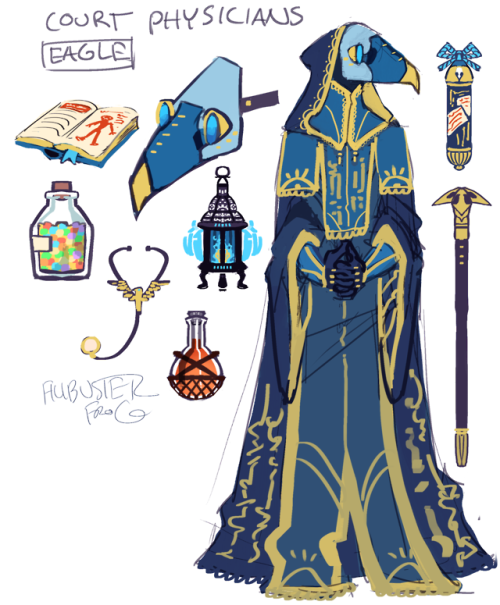
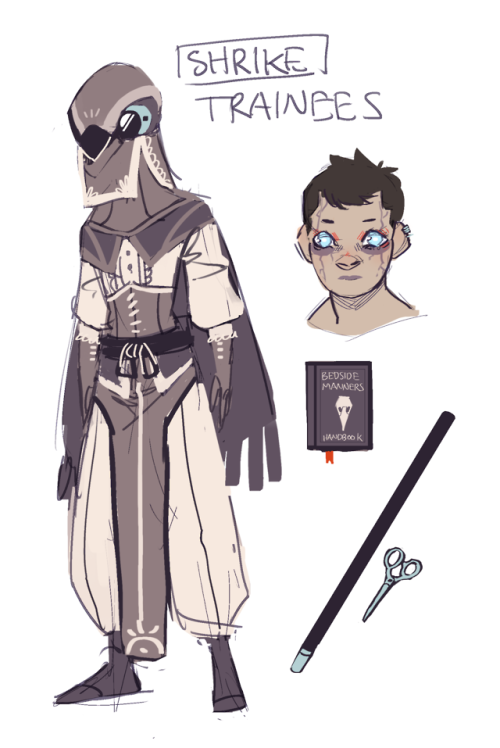

theyre disease-proof mutants that treat diseases of all kinds (including magical ones) the girls are separated into different specialties after training, as follows:
Crows- specialize in treating non-magical ailments of the common folk and prevent spread with the help of vultures. Are generally better at triage than other plague doctors
Owls- specialize in treating magical illnesses. The owls are who you call when the whole village has been put under a curse
Eagles- better at long-term treatment plans for individuals rather than huge outbreaks. Have sweets on hand at all times for bratty nobles
Vultures- Ensure a disease, magical or not, doesn’t spread by any means possible
other characteristics of plague doctors from their mutations include: -living for less time than your standard person -unusual ability in magic or physical strength (sometimes both) -endurance -a lot of love to give
More Posts from Lauremaster and Others
I dont wanna get a job or have real life responsibilities I wanna be an overpowered gay x-men character
tagged by: @mecasloth
nicknames: lou, lissy-lou, loucifer
zodiac sign: Aquarius-Pisces cusp (tbh I’m on the cusp of pretty much every single one of these type of pseudo personality tests, which I find funny)
height: 5’something shorty
hogwarts house: Strong Ravenclaw roots, but growing ever more Slytherin
last thing googled: shadow walk pathfinder
favorite musicians: Not sure I have a specific favorite, but some notable musicians who harken back to specific times in my past are probably folks like Evanescence, Fall Out Boy, etc. One of my current/newer favs may be Grandson. And I’m always down for Disney.
following: 17
followers: 15
do i get asks: nope
amount of sleep: 6-9 hrs, usually try to stay closer to 9 but some days it just doesn’t quite get there
lucky numbers: 9, 19
wearing: Empire Strikes Back t-shirt, just shear enough to barely show a cute bralette, tucked into a pair of ripped mom jeans
dream job: renaissance polymath - so I can do it all; in reality I’m trying to figure out how to find time for all the random hobbies I want to do while having a career in both science and writing
instruments: took piano lessons and did violin for a hot second when I was younger - but as a child I didn’t really like taking direction, so I never got very far
languages: English and random words I mispronounce from other languages
favorite songs: umm, well it really depends on the week I guess… I listen to everything from heavy metal, to rap, to show tunes, and all things in between. Right now I’m on a bit of a classic rock kick specifically Queen - Bohemian Rhapsody and AC/DC - Back in Black and the like
random fact: Damascus steel - an ancient and mythic metal, which to this day is still not able to be recreated only mimicked - has it’s incredible properties due to the presence of carbon nanotubes and cementite nanowires; tangentially ruby glass (aka glass that is the color red) has it’s color due to gold nanoparticles
aesthetic: pretty eclectic - clothing style changes day by day, everything else is an amalgamation of all sorts. I guess some current vibes are marble statues paired with neon lights; hands and eyes; and anything that’s a wink towards my nerdy interests.
Not gonna put anybody on the spot here; but if you’re inspired go for it!
The Final Agni Kai is great for a lot of reasons but it’s also a great example of how to write a fight scene because it was about more than who “won” the fight.
Zuko lost that fight, technically speaking. He took a hit for Katara and wasn’t able to defeat Azula within the bounds of the Agni Kai. He got knocked out and would have died if not for Katara. You could make the argument that Azula defeated her brother here but

She didn’t win.
It’s tempting to write fight scenes as a contest of might where characters try and deplete each other’s imaginary health meters until one of them comes out on top but the most interesting fight scenes, to me, are ones where there is more at stake. Where fighting is a method to resolve a dispute of ideologies rather than a contest of physical brawn.
This was a fight for the soul of the Fire Nation and even though Zuko ended up flat on his ass, electrocuted, with a second scar from a family member for his troubles

This is where Zuko won.
This is where the Fire Lord sacrificed himself for a waterbender and member of an “enemy” nation. This is where he wrested the soul of his country away from a century of imperialist rule.
Yeah, Azula got him with her fifth level Lightning Bolt spell; big whoop. She won the Agni Kai but when has an Agni Kai ever meant anything?
From Season 1, the Agni Kai has been shown to be a futile dick-measuring contest between firebenders. Ozai “won” the Agni Kai with his son, but defeating a defenseless child is not a victory worth winning. Likewise, Azula’s defeat of Zuko here was the end of their Agni Kai but it doesn’t matter.
Zuko doesn’t need to beat Azula to win.
If this was a video game, this would have been the end of Zuko, but it’s not. It’s the moment where Zuko wrests control of the Fire Nation’s destiny away from his father and sister and reunites it with a whole and peaceful world by intentionally losing to protect a friend.

The Fire Nation fell when Azula knocked Zuko out. It rose again when Katara brought him back to life.
Azula won the final Agni Kai but in the end, Zuko won the Fire Nation’s future
why you should not dismiss research unless you rly truly mean it
Internet, I am a queer researcher of queer health and I have something to say.
A few weeks back, a study went viral about the relationship between marriage equality policy and queer teen suicide rates, and a lot of people reacted thusly: “queer mental health is better when we’re not discriminated against! BREAKING: SKY IS BLUE, WATER IS WET”
This happens a lot. People see research about a thing ~Everyone Already Knows~ and they mock it. Now I want to make two things really clear:
1. Everyone does not already know.
2. This shit can lose these projects their funding.
Did you know that media coverage is a crucial factor in funding allocation? When we submit our application for grant renewal, we have to provide a list of news articles about our research so they can decide whether the public cares enough about us to let us keep doing our work. And most research doesn’t get all that much coverage, so individual reactions can really matter. If the primary reaction to our publications is eyerolling, we legitimately might not be able to continue.
I’ve seen some frustration from people who believe this research funding would be better put to use “actually helping” the affected populations instead of–I don’t know, pinning them under microscopes or whatever it is they think we do. But funding for policy initiatives is driven by research. I know you wish politicians would listen to individual voices telling them where the problems are, but that’s honestly not a smart way to direct limited resources. We need solid evidence. And a lot of the areas that need the most attention aren’t obvious–who knew bisexual people are at a much higher risk for physical and mental health disparities than gay and lesbian people? Who would have guessed that transgender folks are more likely than any other group (including straight people) to be military veterans, but overwhelmingly don’t claim their benefits? I’m sure some people noticed these patterns, but they definitely weren’t common knowledge within the queer communities I’ve grown up around, and those findings are leading to direct action as we speak.
I get that it can be frustrating to feel like your identity is being reduced to facts and figures for the benefit of red tape. But trust me, the researchers aren’t your enemy here. Most of us are queer too. All of us are just as frustrated by this crap as you are. We are doing our best, and I swear to you this work really is making a difference. Please don’t sabotage it.
This site is not only full of deliberate disinformation and hoaxes, it’s rife with anti-intellectualism.
I encourage people to research anything that sounds fantastic and totally different than what they were taught - even in my posts.
If you see a blog post with startling information, do the CRAAP Test! (developed by Sarah Blakeslee and her team of librarians at California State University, Chico)
Currency: What is the copyright, publication, or posting date? Does the date matter? Is the information outdated?
Relevance: For what audience or level is the information written (general public, experts/scholars, etc.)?
Authority: Who is the author, creator, or publisher of the source or what organization is responsible for the source? How do you know if the author is an expert on the topic (e.g examine the author’s credentials and/or organizational affiliation)?
Accuracy: What indications do you see that the information is or is not well researched or provides sufficient evidence? What kind of language, imagery and/or tone is used (e.g. emotional, objective, professional, etc.)?
Purpose: Why was this source written (e.g.to inform, teach, entertain, persuade)? How might the author’s affiliation affect the point of view, slant, or potential bias of the source?
More help:
The Ultimate Cheatsheet for Critical Thinking
Judging Source Quality
The Layperson’s Guide to Online Research
Media Bias/Fact Check Use the search feature to find the bias (left, right, center, and in-between) of any news source.
Snopes fact check
How to Spot Fake News from FactCheck.org
What is a “Good” Source? Determining the Validity of Evidence
Fake News and News Bias

a character design i came up with

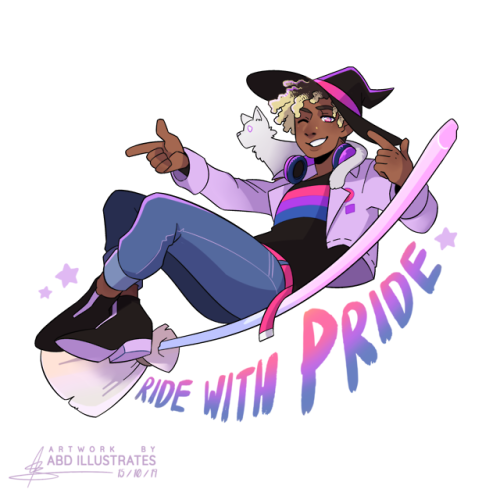

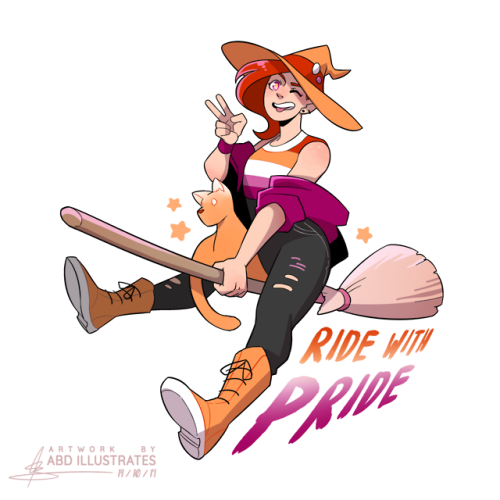
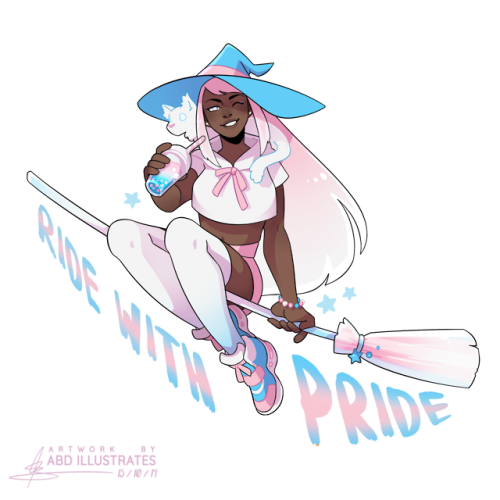
Halloween, but make it Gay 🎃🌈
I couldn’t find any gay Halloween merch that I liked, so I made my own!
Drew these designs for this week’s speedpaint in order to both celebrate Halloween and shine a light on the fact that it’s LGBT history month!
.
(If you like the look of these designs, you can pick your favorites up over on Redbubble!)
(DON’T EDIT OR REPOST TO OTHER SITES) // FULL SIZE VERSIONS ON MY DA (<-link in my blog header)
bring back ghost autographs or perish.

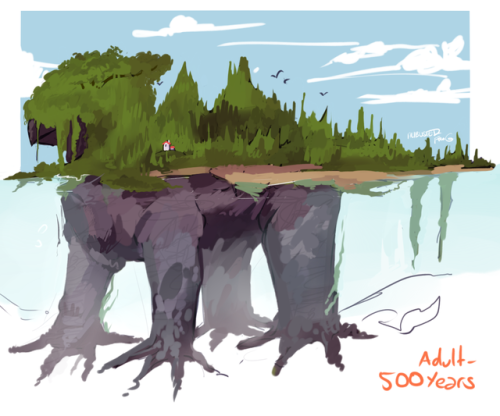
living islands
-
 edenintheskies reblogged this · 1 month ago
edenintheskies reblogged this · 1 month ago -
 aquaticsapphic-moved liked this · 1 month ago
aquaticsapphic-moved liked this · 1 month ago -
 vexmc liked this · 1 month ago
vexmc liked this · 1 month ago -
 coldandfoggy liked this · 1 month ago
coldandfoggy liked this · 1 month ago -
 neighborlyarson reblogged this · 1 month ago
neighborlyarson reblogged this · 1 month ago -
 neighborlyarson liked this · 1 month ago
neighborlyarson liked this · 1 month ago -
 peachy-kun liked this · 1 month ago
peachy-kun liked this · 1 month ago -
 polymathema reblogged this · 1 month ago
polymathema reblogged this · 1 month ago -
 polymathema liked this · 1 month ago
polymathema liked this · 1 month ago -
 existentialcrisisetcetera reblogged this · 1 month ago
existentialcrisisetcetera reblogged this · 1 month ago -
 werevampiwolf reblogged this · 1 month ago
werevampiwolf reblogged this · 1 month ago -
 plaguedootdoot reblogged this · 1 month ago
plaguedootdoot reblogged this · 1 month ago -
 plaguedootdoot liked this · 1 month ago
plaguedootdoot liked this · 1 month ago -
 wearehyphae reblogged this · 1 month ago
wearehyphae reblogged this · 1 month ago -
 plaguefloral liked this · 1 month ago
plaguefloral liked this · 1 month ago -
 fresh-cup-of-antimatter reblogged this · 1 month ago
fresh-cup-of-antimatter reblogged this · 1 month ago -
 fresh-cup-of-antimatter liked this · 1 month ago
fresh-cup-of-antimatter liked this · 1 month ago -
 avixthecat liked this · 1 month ago
avixthecat liked this · 1 month ago -
 ramblin-tiger reblogged this · 1 month ago
ramblin-tiger reblogged this · 1 month ago -
 ramblin-tiger liked this · 1 month ago
ramblin-tiger liked this · 1 month ago -
 kelp-connoisseur reblogged this · 1 month ago
kelp-connoisseur reblogged this · 1 month ago -
 kelp-connoisseur liked this · 1 month ago
kelp-connoisseur liked this · 1 month ago -
 senseidominique liked this · 1 month ago
senseidominique liked this · 1 month ago -
 angstandhappiness reblogged this · 1 month ago
angstandhappiness reblogged this · 1 month ago -
 the-yggdrasil-system liked this · 1 month ago
the-yggdrasil-system liked this · 1 month ago -
 the-yggdrasil-system reblogged this · 1 month ago
the-yggdrasil-system reblogged this · 1 month ago -
 butlerkobold reblogged this · 1 month ago
butlerkobold reblogged this · 1 month ago -
 sweet-void-princess liked this · 1 month ago
sweet-void-princess liked this · 1 month ago -
 redvark231 liked this · 1 month ago
redvark231 liked this · 1 month ago -
 floodwizard249 liked this · 2 months ago
floodwizard249 liked this · 2 months ago -
 ilovemeaman liked this · 2 months ago
ilovemeaman liked this · 2 months ago -
 eclectichellmouth reblogged this · 2 months ago
eclectichellmouth reblogged this · 2 months ago -
 norrak liked this · 2 months ago
norrak liked this · 2 months ago -
 charlesclockmaker liked this · 2 months ago
charlesclockmaker liked this · 2 months ago -
 sbevedesires liked this · 2 months ago
sbevedesires liked this · 2 months ago -
 kay-the-fey liked this · 2 months ago
kay-the-fey liked this · 2 months ago -
 radiostation24 liked this · 2 months ago
radiostation24 liked this · 2 months ago -
 cursedcrowscaw liked this · 2 months ago
cursedcrowscaw liked this · 2 months ago -
 did-ya-hear-somethin liked this · 2 months ago
did-ya-hear-somethin liked this · 2 months ago -
 hazardous-muttboy liked this · 2 months ago
hazardous-muttboy liked this · 2 months ago -
 one-chaotic-ghost liked this · 2 months ago
one-chaotic-ghost liked this · 2 months ago -
 syntacticerrortxt reblogged this · 3 months ago
syntacticerrortxt reblogged this · 3 months ago -
 so-fucking-gay26 liked this · 3 months ago
so-fucking-gay26 liked this · 3 months ago -
 lycanstheorum22 reblogged this · 3 months ago
lycanstheorum22 reblogged this · 3 months ago -
 lycanstheorum22 liked this · 3 months ago
lycanstheorum22 liked this · 3 months ago -
 thereallifeofaraccoon reblogged this · 3 months ago
thereallifeofaraccoon reblogged this · 3 months ago -
 mythiceyes liked this · 3 months ago
mythiceyes liked this · 3 months ago -
 brimstonetaco reblogged this · 3 months ago
brimstonetaco reblogged this · 3 months ago -
 maikamaii liked this · 3 months ago
maikamaii liked this · 3 months ago
